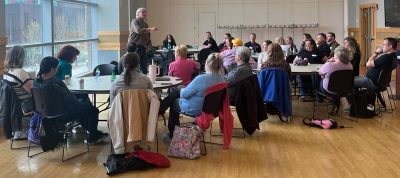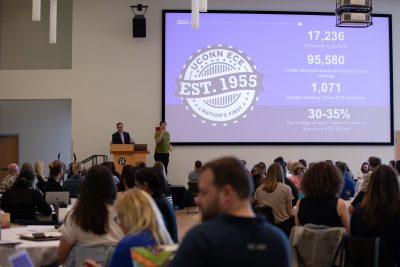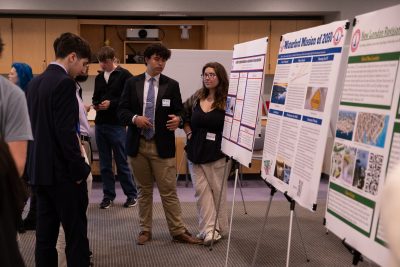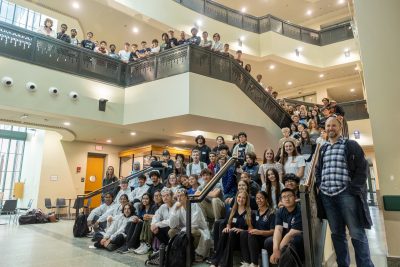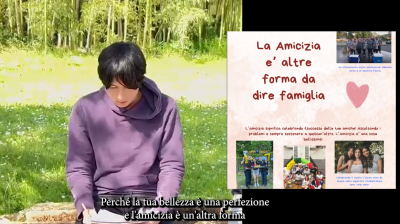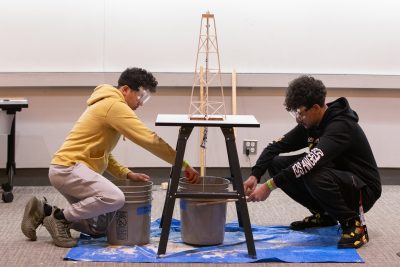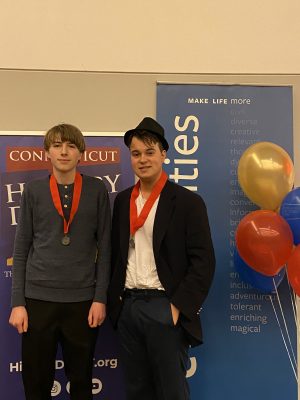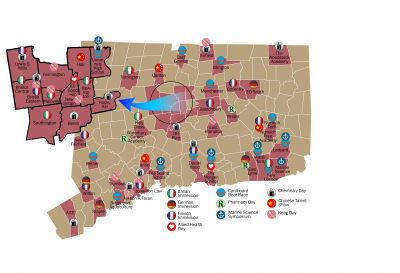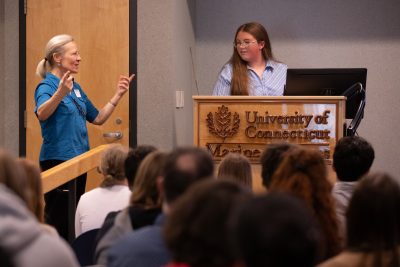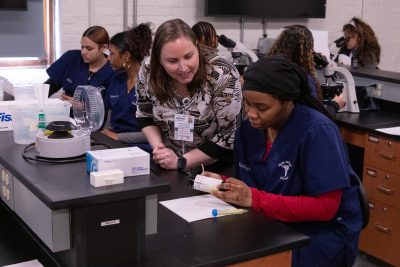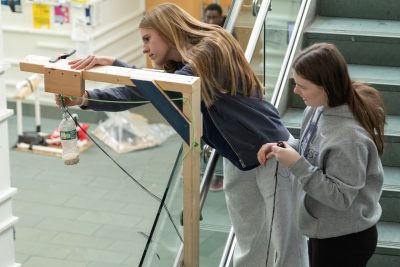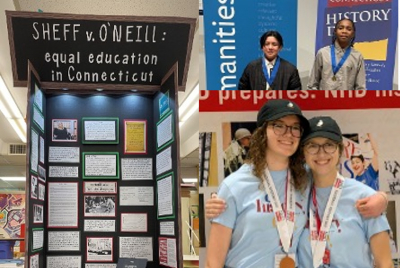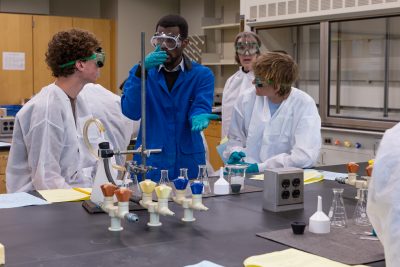By Christopher Todd
Partnering with school districts, to meet the needs of educators and students across the state, continues to be a founding tenant of all programming within the Office of Early College Programs. The UConn Early College Experience (ECE) program continues to broaden access to rigorous, college coursework, strengthening pathways into meaningful careers and expanding opportunities in key academic and professional fields.
New offerings such as ARE 1110E: Population, Food, and the Environment introduces students to real-world economic and environmental challenges related to food systems and resource use, supporting career interests in sustainability, agribusiness, and public policy. In the sciences, CHEM 1124Q & CHEM 1125Q: Fundamentals of General Chemistry I & II provide foundational chemistry knowledge essential for advanced study in health sciences, engineering, and research-based careers. These courses support students preparing for majors in chemistry, pharmacy, biology, and related STEM areas by delivering college-level laboratory and quantitative experience while still in high school.
The arts, engineering, and professional skill development are further enriched through courses like DRAM 1101: Introduction to Theatre and DRAM 3141: Playwriting and Workshop, which nurture creativity, communication, and critical thinking—skills valuable across creative industries and collaborative work environments. On the engineering front, ENGR 1195: Special Topics in Engineering: AI Literacy (AI for All) immerses students in contemporary technological literacy, preparing them for careers at the intersection of computing, design, and innovation, while ME 2140: Computer-Aided Design and Manufacturing offers hands-on experience with SolidWorks/CAD and design tools relevant to manufacturing and product development. In the health professions, PHAR 1002: Fundamentals of Pharmacology and PHRX 3057: Discovering the Leader Within build foundational scientific understanding and professional leadership skills, supporting future pathways in pharmacy, medicine, and allied health.
Complementing these discipline-specific offerings, UNIV 1820: First Year Seminar – Intro to Making engages students in creative problem solving foundational to maker and design thinking, supporting a successful transition to college-level learning while encouraging innovation across academic and career interests. Together, these courses reflect UConn ECE’s continued commitment to broadening access, expanding opportunity, and preparing students for future success in high-demand fields.
As a result, the program continues to expand access to high-quality, college coursework that strengthens career pathways and supports student exploration across multiple career pathways including but not limited to education, health sciences, engineering, and STEM fields.









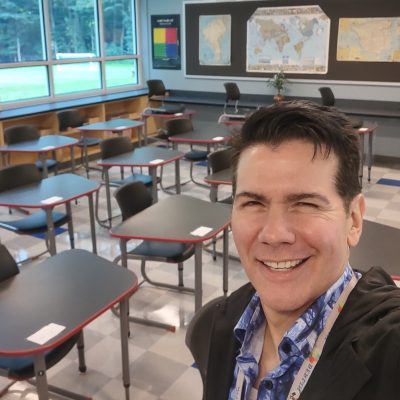 Conversation: Cultural Topics, since 2012. His unique gift to ECE classrooms was bringing alive the language, culture, and history through his storytelling based on his extensive travel experiences in the Hispanic and Portuguese worlds, and his Chilean heritage. In his retirement, Mr. Lewis will move on to his third career teaching Buddhist philosophy and practice, and eventually living part time in the White Mountains and in Chile.
Conversation: Cultural Topics, since 2012. His unique gift to ECE classrooms was bringing alive the language, culture, and history through his storytelling based on his extensive travel experiences in the Hispanic and Portuguese worlds, and his Chilean heritage. In his retirement, Mr. Lewis will move on to his third career teaching Buddhist philosophy and practice, and eventually living part time in the White Mountains and in Chile.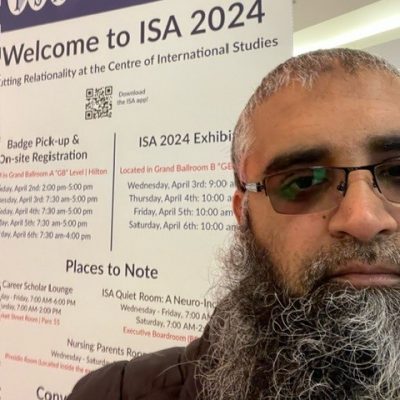 International Studies Association Annual Conference in San Francisco, CA in April, where he presented a research paper on Nationalism and identities in South Asia, an article version of his dissertation. He also co-presented on forming national identities, mass culture, and land rights. Dr. Rafiq was able to attend several sessions, including foreign policies, using role theory and Arab Spring 2.0, and civil war research.
International Studies Association Annual Conference in San Francisco, CA in April, where he presented a research paper on Nationalism and identities in South Asia, an article version of his dissertation. He also co-presented on forming national identities, mass culture, and land rights. Dr. Rafiq was able to attend several sessions, including foreign policies, using role theory and Arab Spring 2.0, and civil war research.
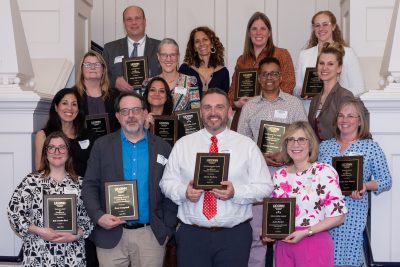
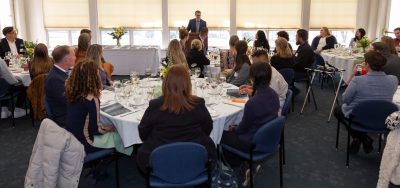 ear we had the great honor to recognize thirteen Professional Recognition Award winners along with six award winners of the Silver Jubilee Award (25-year partners). The night was filled with heartfelt speeches, tears of joy, laughter, and celebration as winners, accompanied by their family and friends were able to pause and acknowledge the great impact they have on the lives of their students, their community, and those who work alongside them.
ear we had the great honor to recognize thirteen Professional Recognition Award winners along with six award winners of the Silver Jubilee Award (25-year partners). The night was filled with heartfelt speeches, tears of joy, laughter, and celebration as winners, accompanied by their family and friends were able to pause and acknowledge the great impact they have on the lives of their students, their community, and those who work alongside them.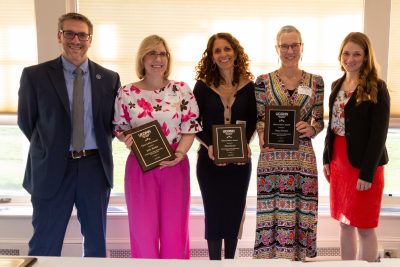
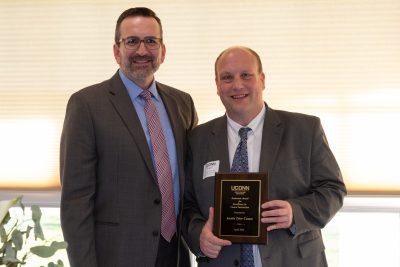
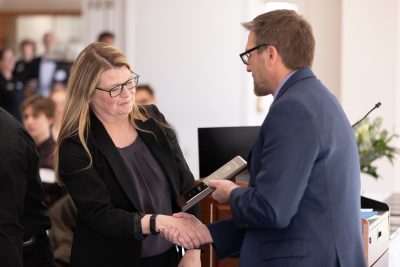
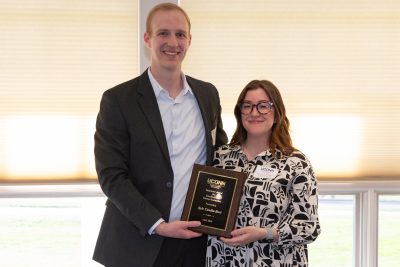
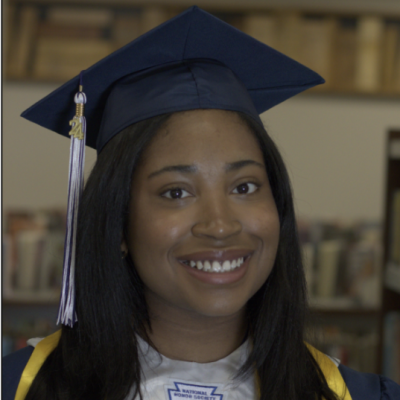
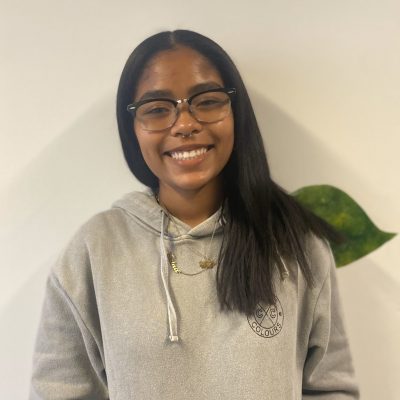
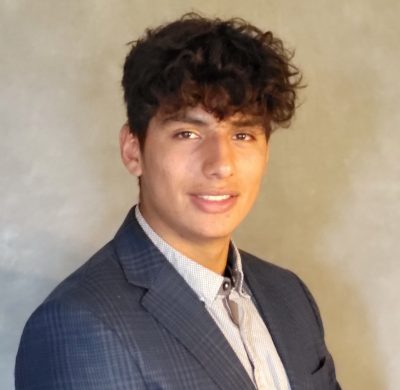

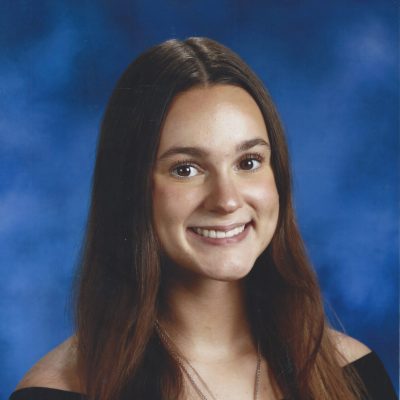
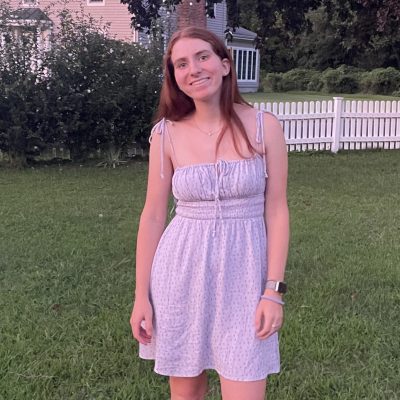
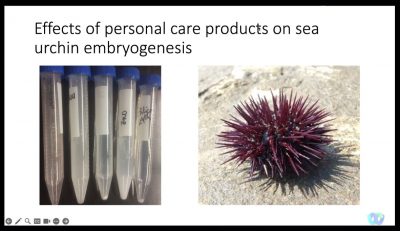
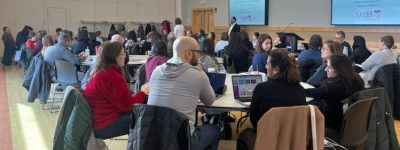 UConn ECE Faculty Coordinators from Spanish, Profs. Gustavo Nanclares and Eduardo Urios-Aparisi met with more than 60 Spanish Instructors to listen to Prof. Maria Acosta Cruz, Professor of Spanish in the Language, Literature & Culture Dept at Clark University. Prof. Acosta shared her talk “Ecocrítica, cultura y nación: La cultura puertorriqueña a través de cinco siglos” (“Ecocriticism, Culture, and Nation: Puerto Rican Culture Through Five Centuries”) with the teachers.
UConn ECE Faculty Coordinators from Spanish, Profs. Gustavo Nanclares and Eduardo Urios-Aparisi met with more than 60 Spanish Instructors to listen to Prof. Maria Acosta Cruz, Professor of Spanish in the Language, Literature & Culture Dept at Clark University. Prof. Acosta shared her talk “Ecocrítica, cultura y nación: La cultura puertorriqueña a través de cinco siglos” (“Ecocriticism, Culture, and Nation: Puerto Rican Culture Through Five Centuries”) with the teachers.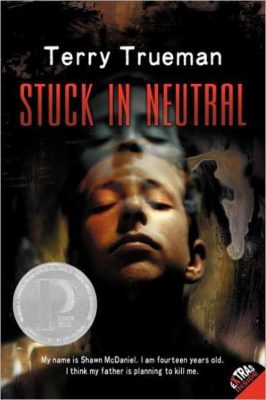
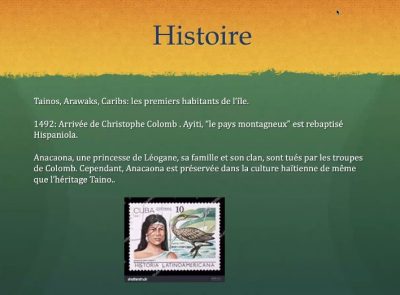 UConn ECE Faculty Coordinator from French, Prof. Florence Marsal met with 30 UConn ECE certified French Instructors to hear from Joëlle Vitiello, Professor of French and Francophone Studies at Macalester College for her talk “Enseigner les trésors d’Haïti” (“Teaching the Treasures of Haiti”). In addition, Mary Catherine Decoteau, Career Consultant from UConn’s Career Services, spoke to teachers about enhancing and highlighting career competencies in UConn French courses.
UConn ECE Faculty Coordinator from French, Prof. Florence Marsal met with 30 UConn ECE certified French Instructors to hear from Joëlle Vitiello, Professor of French and Francophone Studies at Macalester College for her talk “Enseigner les trésors d’Haïti” (“Teaching the Treasures of Haiti”). In addition, Mary Catherine Decoteau, Career Consultant from UConn’s Career Services, spoke to teachers about enhancing and highlighting career competencies in UConn French courses.